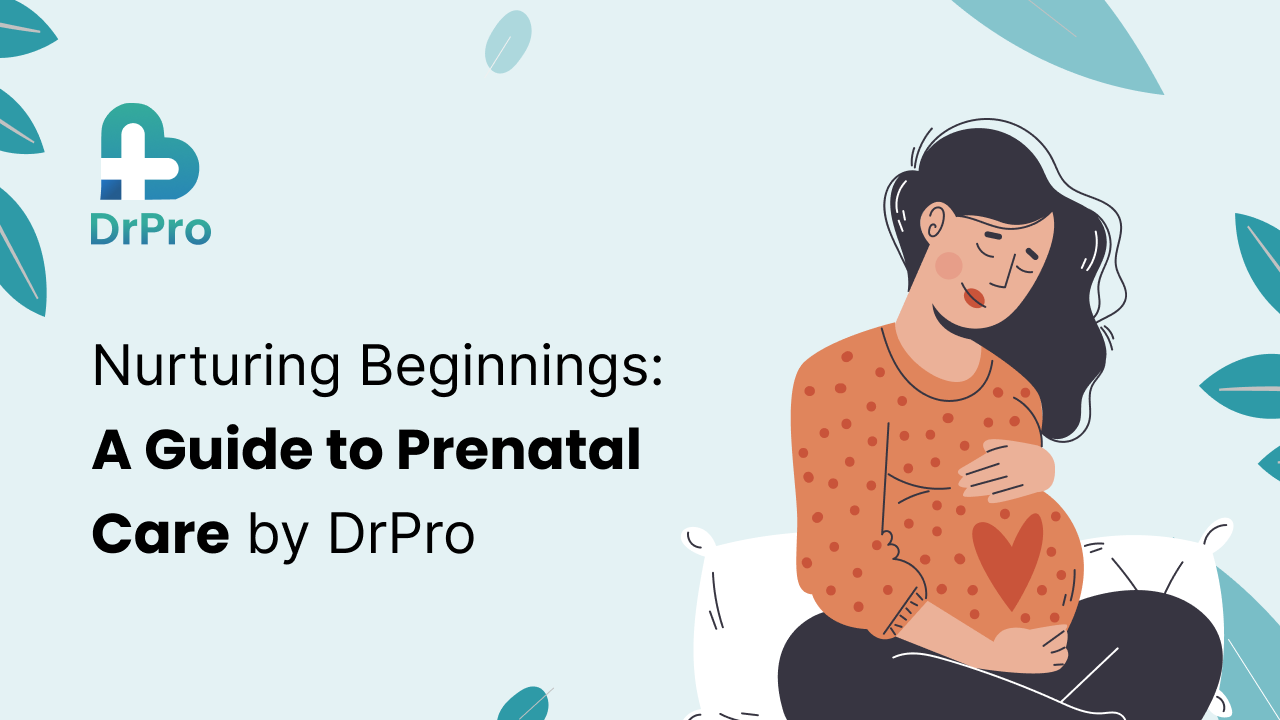Pregnancy is a very special period in a woman’s life. Depending on how long you have trying or if it was a shock, one of the first things that you are going to have to think about after you find out you’re pregnant is prenatal care. Both for you and your child it is important. Antenatal care is not just going for a medical check-up it’s a full process that comes along with a successful pregnancy and a healthy newborn. From this content you will learn about prenatal care standards, why these are important, and what will be expected throughout the process.
What is Prenatal Care?
Prenatal health is explained as the care that you obtain before you give birth. They are common well-being checkups and tests to confirm that both you and the baby are in good health. Most of these care begin as soon as one confirms pregnancy up to the time of delivering the baby. Prenatal care as a process is designed to identify any risks in your pregnancy, help to track the development of the baby, and also to check that both you and the baby are in good health during the pregnancy.
Such care may require that you visit your doctor for routine appointments, blood tests, ultrasound, and other diagnostic tests. They are useful during pregnancy because they are involved in screening for any complications during pregnancy before they get worse. As you go through pregnancy, prenatal care aims at ensuring that both you and your unborn child remain in the best health status ever.
DrPro’s software solutions, specifically designed for healthcare providers, help streamline patient management, ensuring that prenatal care is more efficient and personalized. With features such as electronic medical records (EMR) integration, healthcare providers can access and update patient information in real time, ensuring a seamless experience for expectant mothers.
Why Prenatal Care Matters?
Taking prenatal care is one of the best things that a woman should do for herself and the baby. There are many reasons why it matters:
Ensures Early Detection of Complications:
Sometimes pregnancy complications may not manifest signs at an initial stage such as high blood pressure, gestational diabetes, or preeclampsia. Prenatal tests help the doctor identify any complications that may be present so that necessary actions can be taken.

Supports Healthy Baby Development:
Prenatal care aims to make sure that your baby is growing as required. During these visits, your healthcare provider will assess the growth of the baby, listen to the heartbeat, and examine the progress of the pregnancy.
Promotes Maternal Health:
Your body goes through a lot during pregnancy, and occasionally, some things may not turn out so well. A prenatal is used to check your health status such as your diet, weight status, and blood pressure among other essential health bodily aspects.

Reduces the Risk of Premature Birth:
Some research work has revealed that women who attend antenatal clinics regularly are less likely to develop complications that may result in preterm labor and this has negative impacts on the life of both the mother and the baby.
Provides Education and Support:
Prenatal visits are your chance to make inquiries, get information about what a pregnant woman should expect to experience at the various stages, and gain encouragement. Your healthcare provider is knowledgeable about diet tips, fitness, sexuality, and much more that can be helpful for you.

Process You Should Know for Prenatal Care
Prenatal care differs in some manner depending on the place where one resides and the doctor one attends but generally, there is a nearly similar pattern to follow. Here’s what you can expect:
Confirming the Pregnancy:
The first thing that anyone who believes he or she is pregnant should do is to take a home pregnancy test. The next step after that is making an appointment with your healthcare provider. While seeing your doctor or midwife for the first time you will undergo a physical examination, blood test, and maybe an ultrasound to determine the pregnancy and the probable date of delivery.
Regular Checkups:
After your first visit, you will have prenatal visits at least once a week till you are nine months pregnant. In the case of early months, it is computed on every four weeks basis. These visits will increase in frequency during your third trimester to, for example, every two weeks and then weekly during the last few weeks before your delivery. This is when you will be weighed and have your blood pressure taken and you will have tests to check on the progress of your baby.
Blood Tests and Screenings:
First of all, you will be given several routine blood tests to determine, for instance, anemia, blood type, and infections. You will also be tested for other illnesses for example HIV, syphilis, and hepatitis B. Depending on your health history, that of your family, or any family planning that you may be undertaking the doctor will also test for genetic disorders such as Down syndrome, spina bifida, or any other disorder that may be affecting your family or you.
Ultrasounds and Imaging:
You will likely have a sonogram at the beginning of the pregnancy to make sure that you are pregnant and to listen to your baby’s heartbeat, usually between 8 to 12 weeks. Another ultrasound at 18-22 weeks will target the growth of the baby and any())))
abnormalities. These are important in imaging so that everything is moving as it should.
Monitoring for Common Complications:
Your doctor will watch out for complications such as high blood pressure, gestational diabetes, and other complications that may endanger the life of the mother or the baby. If you are at greater risk for these complications (say if you are hypertensive), your ob/gyn will keep a closer check on you.
Lifestyle and Wellness Guidance:
Prenatal care is also an aspect of the general health of the woman or the prospective mother. During pregnancy, your provider will advise you on foods to take, the level of activities required during pregnancy and what should not be taken, and products like alcohol, cigarettes, and certain drugs. You may also be prescribed some vitamins, for example, folic acid, to promote healthy pregnancy.
Preparing for Labor and Delivery:
As your pregnancy comes toward its last few weeks, your caregiver will begin to talk with you about birth and the process of delivering your baby. They will counsel them on when to go to the hospital, what couples should expect, and the available pain-relieving options. You might also attend childbirth classes, or begin to consider the option of postnatal care.
Conclusion
Prenatal care is one of the things that make up a healthy pregnancy and a healthy baby. To minimize risk factors for both you and your unborn child, you should as early as now become compliant about prenatal care: go to your OB-Gyne for check-ups as scheduled, and follow all of his advice carefully. Every pregnancy is different and thus should not hesitate to discuss professionally with your doctor any issues, questions, or alterations. Your health, the health of your baby depends on, this careful and thorough approach.
If there is one thing that can give comfort than taking care of oneself at this time, there is enjoyment in the experience of being a mother and providing the best life for the baby. Stay up-to-date by remaining connected with DrPro Wellness for additional informative articles.
FAQs
Q1. When should I start prenatal care?
You should schedule your first prenatal appointment as soon as you find out you’re pregnant. Ideally, prenatal care should begin early, preferably within the first 6-8 weeks of pregnancy.
Q2. How often will I need to visit the doctor?
During the first 28 weeks of pregnancy, you’ll typically see your doctor once a month. From 28 to 36 weeks, visits may become more frequent (every two weeks), and after 36 weeks, you’ll likely see your doctor weekly until you give birth.
Q3. Are ultrasounds necessary during pregnancy?
Yes, ultrasounds are important for monitoring the baby’s development and checking for any potential issues. The first ultrasound is usually done between 8-12 weeks, with another detail scan around 18-22 weeks.
Q4. Can prenatal care help prevent complications?
Yes, regular prenatal visits help detect complications early, so your doctor can intervene and manage any risks. For example, managing high blood pressure or gestational diabetes early on can prevent serious complications.
Q5. What should I do if I miss a prenatal appointment?
It’s important not to miss any prenatal visits, as regular checkups help ensure the health of both you and your baby. If you do miss an appointment, contact your healthcare provider as soon as possible to reschedule.

